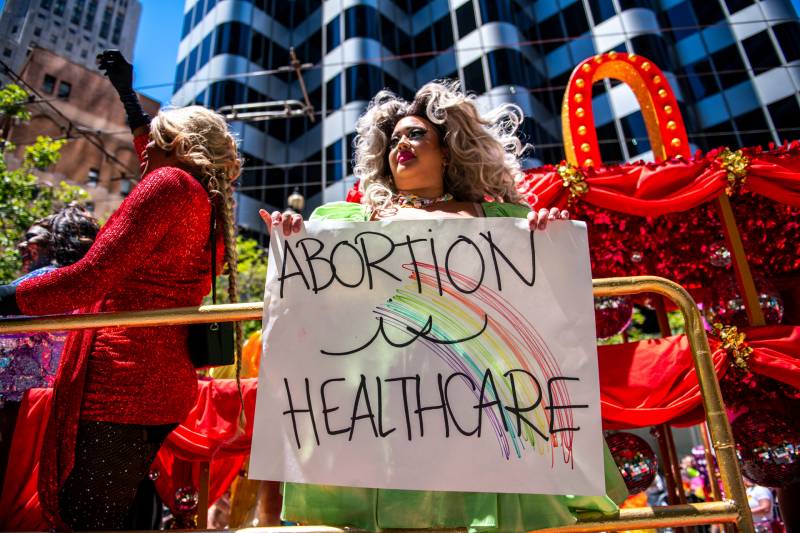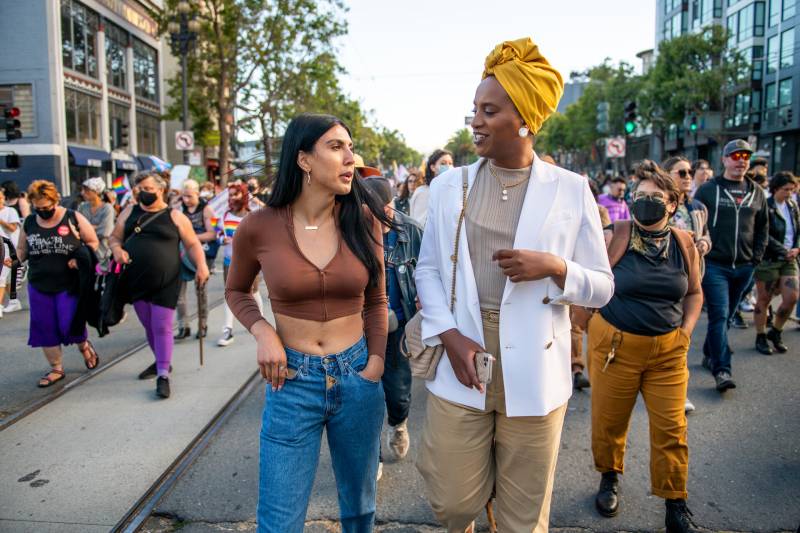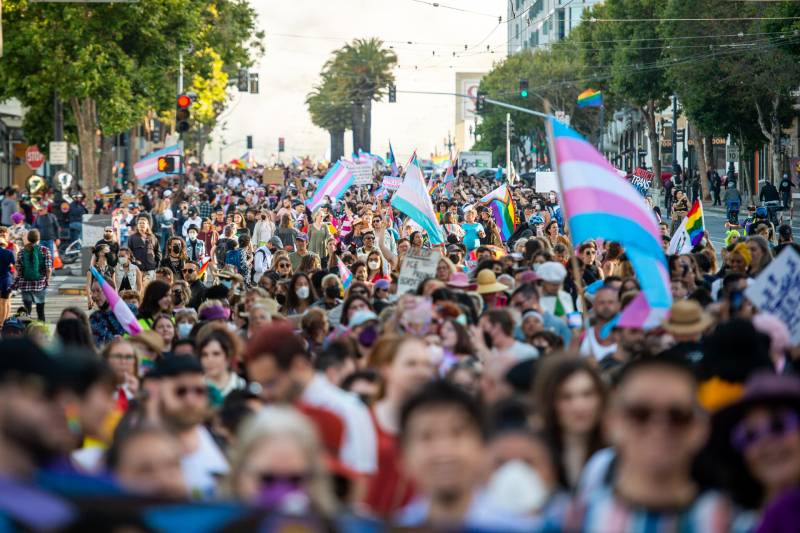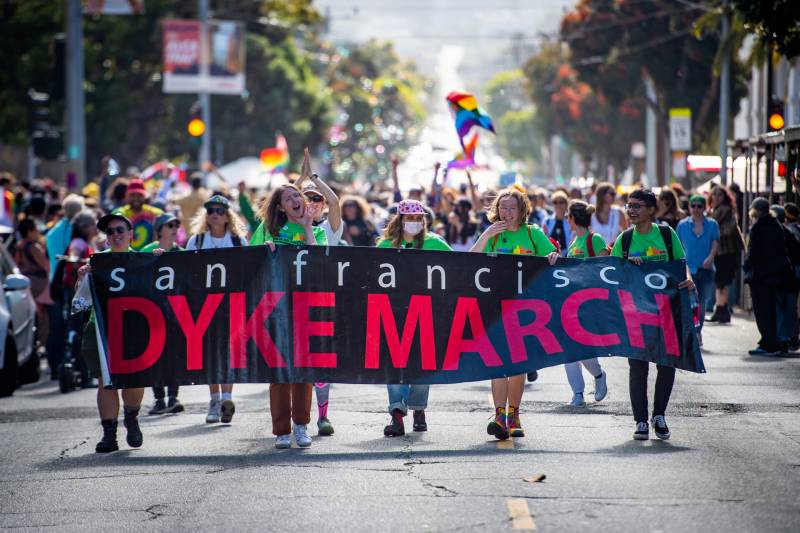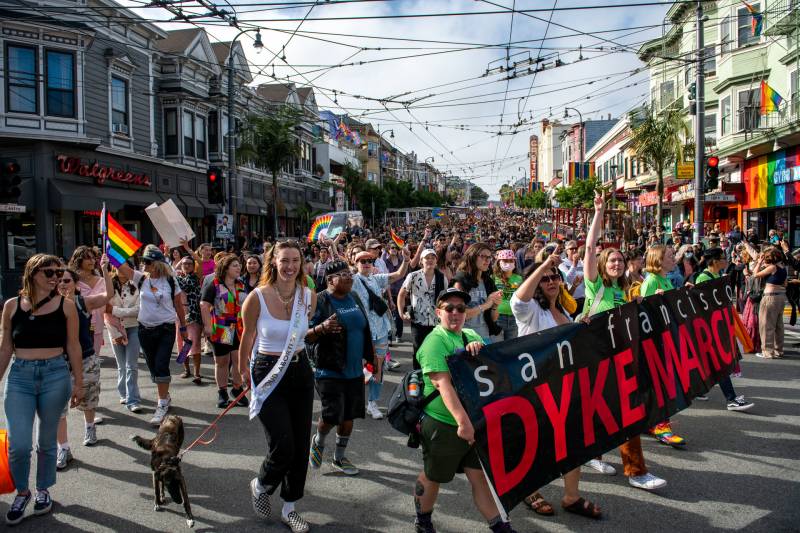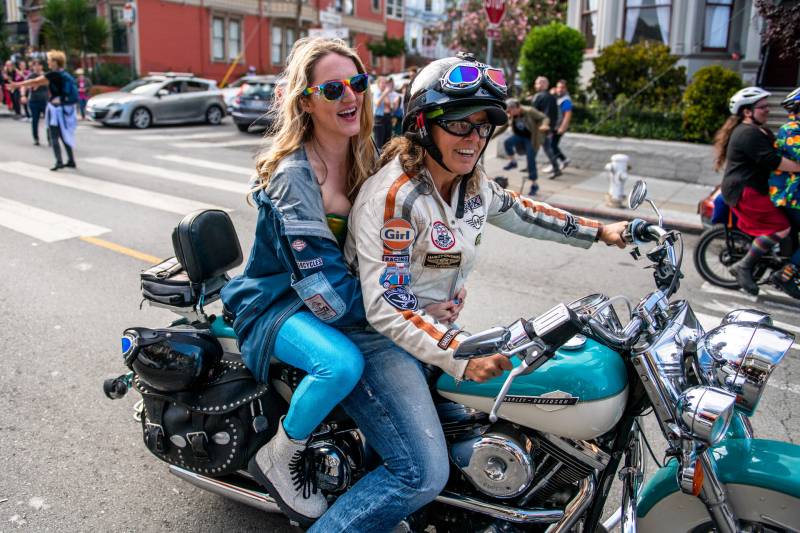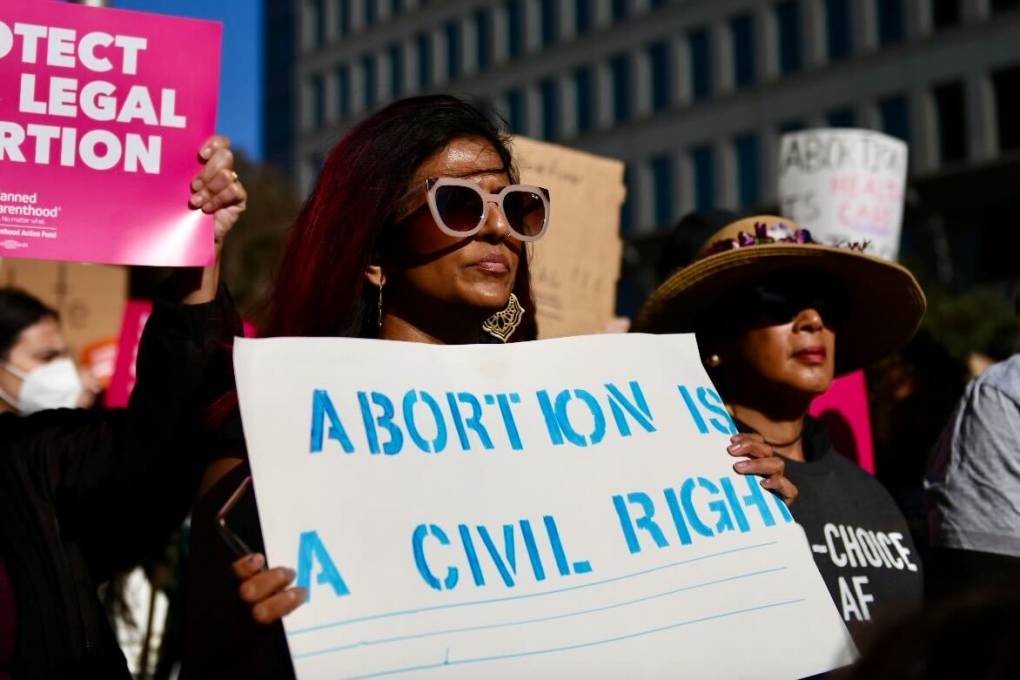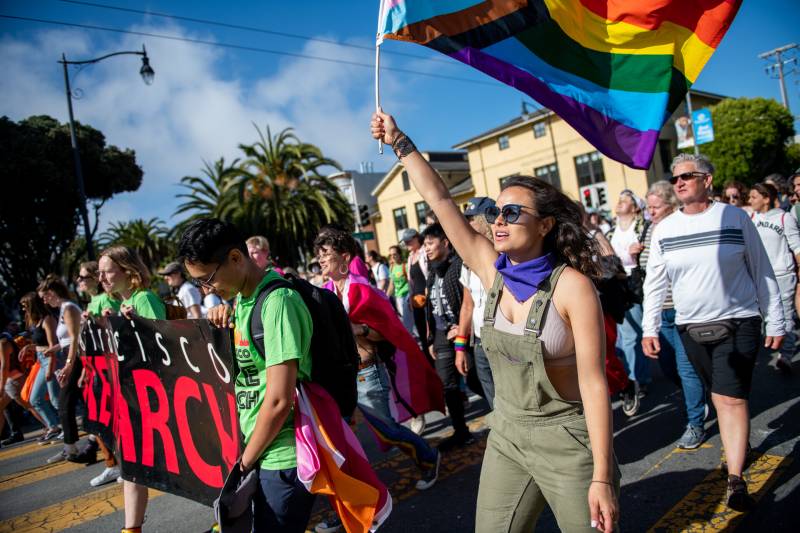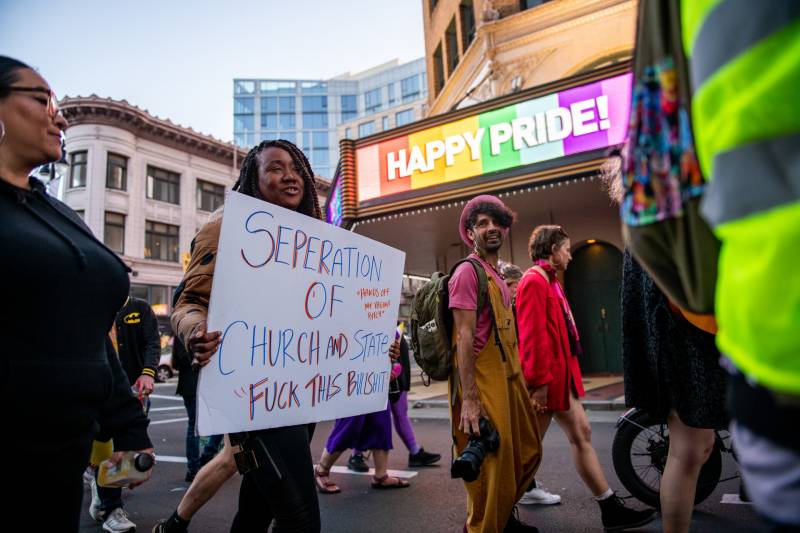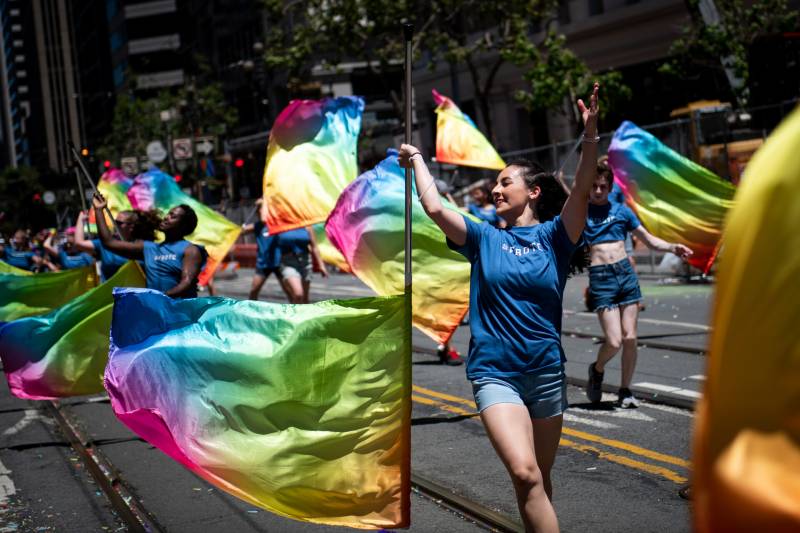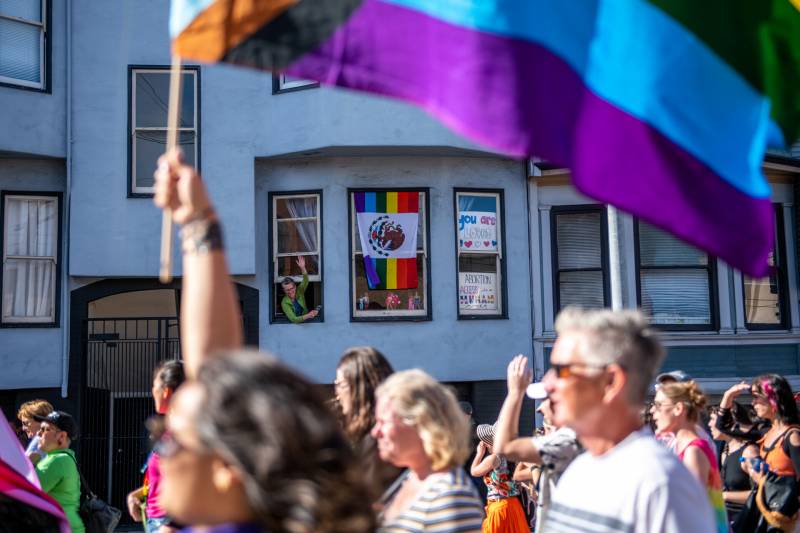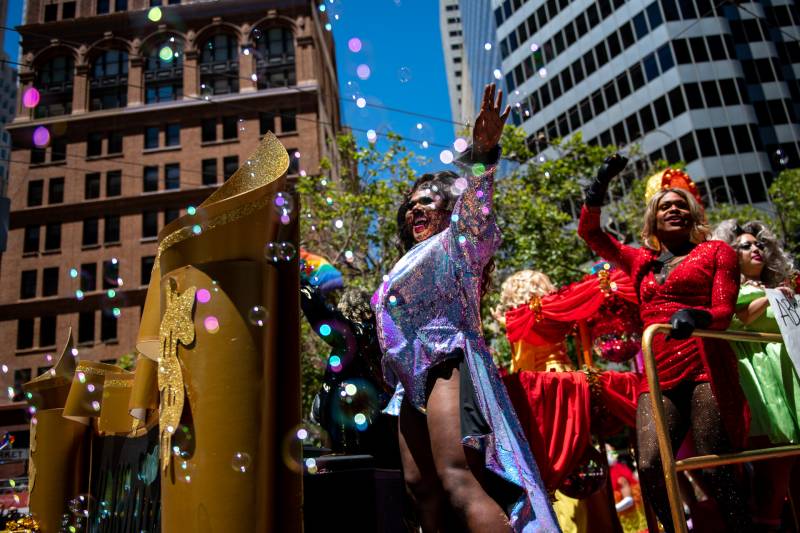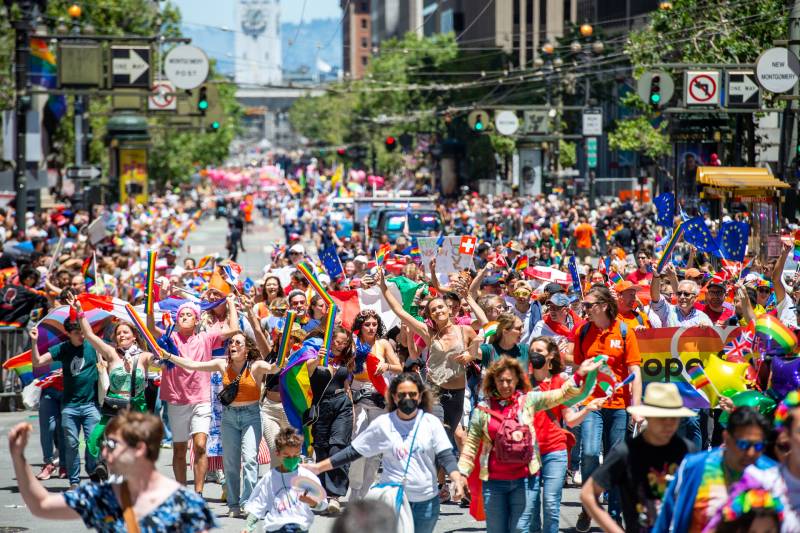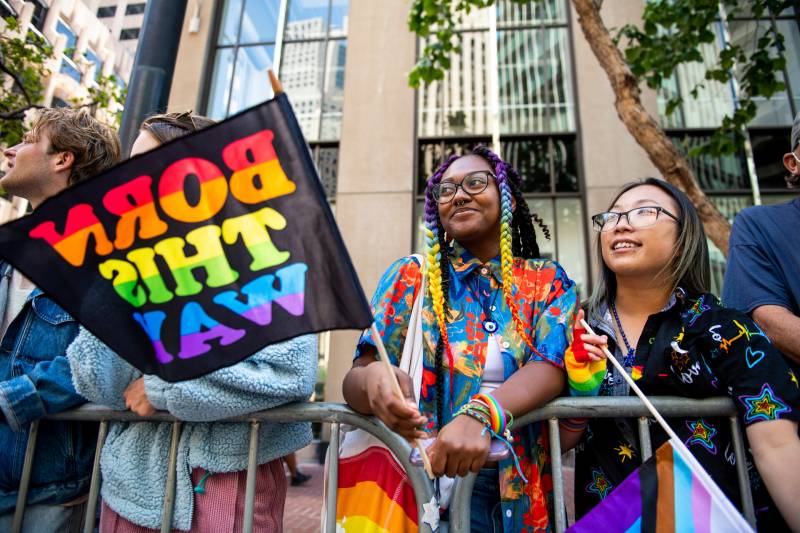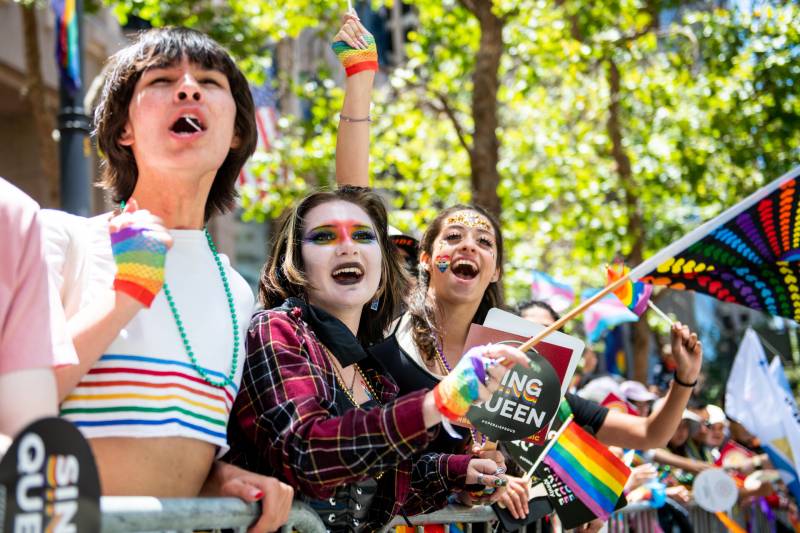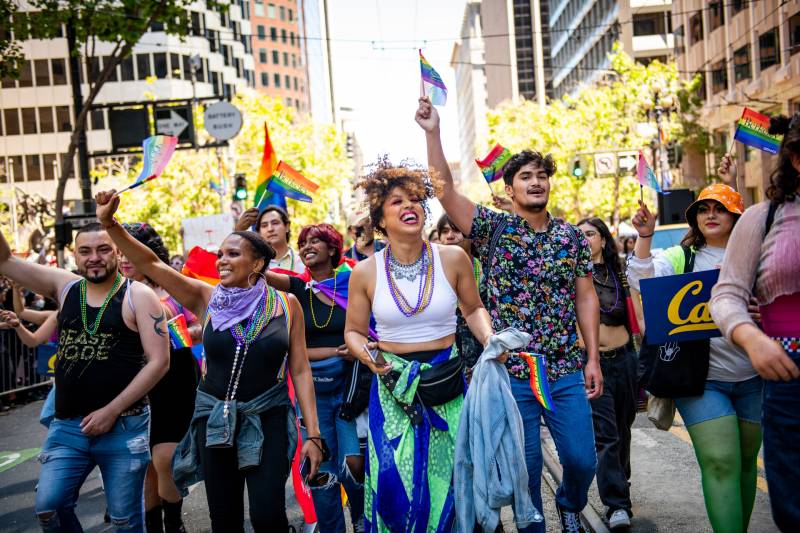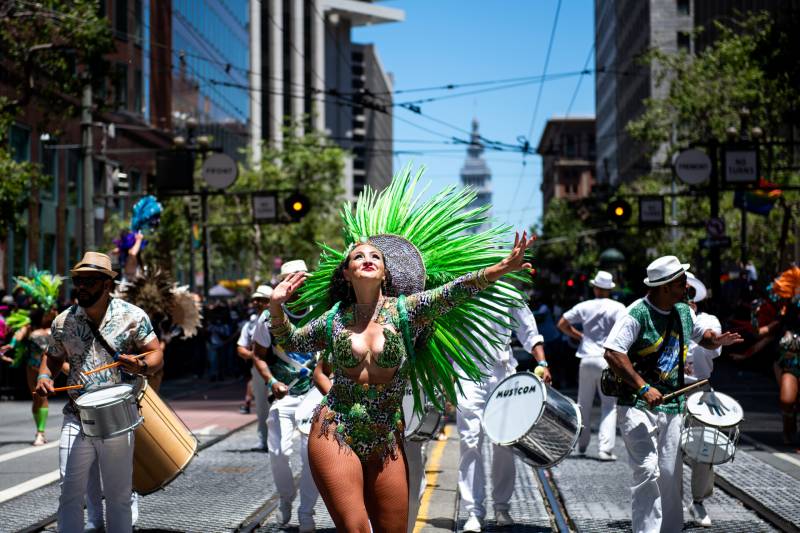Although it became clear that the Supreme Court would overturn Roe v. Wade when its draft opinion leaked in May, the advance notice didn’t make it easier to accept when the decision landed. We’ve entered a new, less free reality: Abortion is now banned in 10 states, and five more will ban it within the month. Furthermore, a section in the Supreme Court’s majority opinion prompted fears about the rollback of other civil rights, including marriage equality.
Palpable grief and anger swept the Bay Area on Friday as San Francisco headed into Pride weekend. But LGBTQ+ people didn’t cower in fear—they celebrated in defiance.
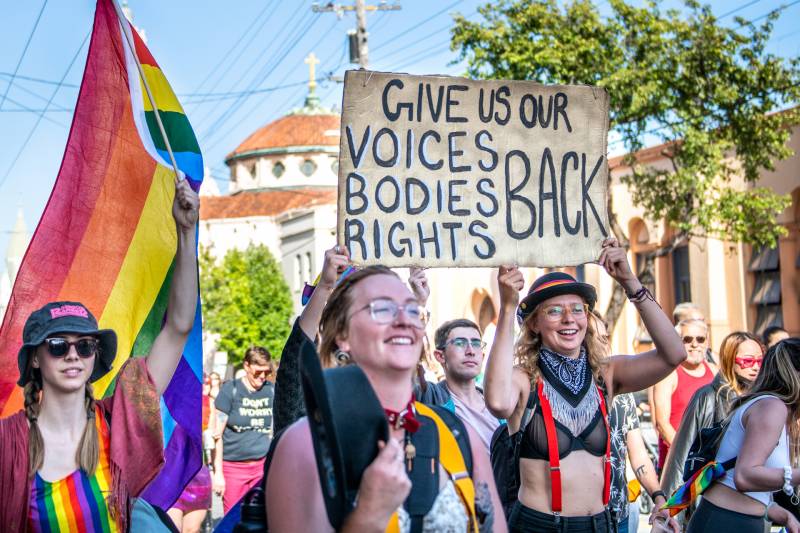
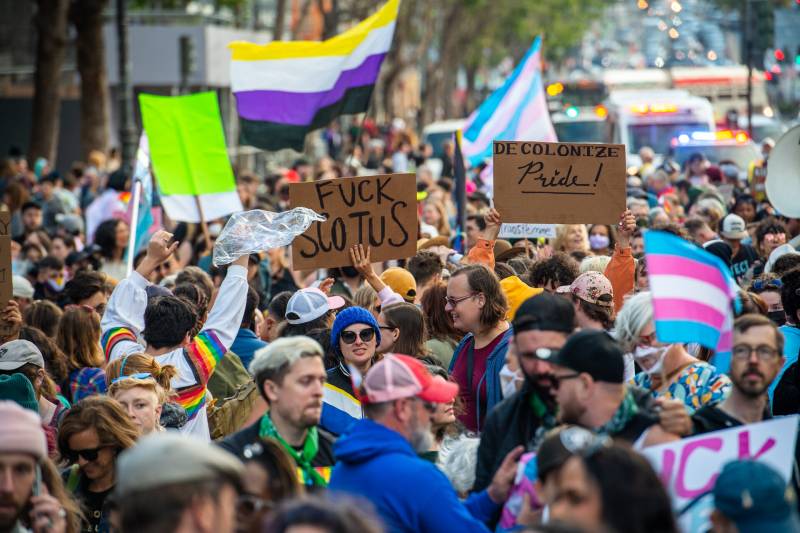
As thousands of people joined the Trans March at Dolores Park on June 24, the day the ruling came down, a queer and trans drum ensemble kept a steady beat while the crowd chanted, “When our community is under attack, what do we do / Rise up, fight back!” Though Roe is technically dead, and numerous states are legislating against trans healthcare and other rights, the Trans March didn’t feel like a funeral procession. Instead, it became a ritual transmuting rage into collective power and offering a prayer for the next generation.
As the march made its way downtown on Market Street, a girl who looked no older than 10 led a chant of “Hey hey, ho ho, transphobia has got to go.” As the Trans March converged with several abortion rights protests happening at the same time, there was a groundswell of energy as people chanted, “Reproductive and trans rights / One struggle, one fight!”
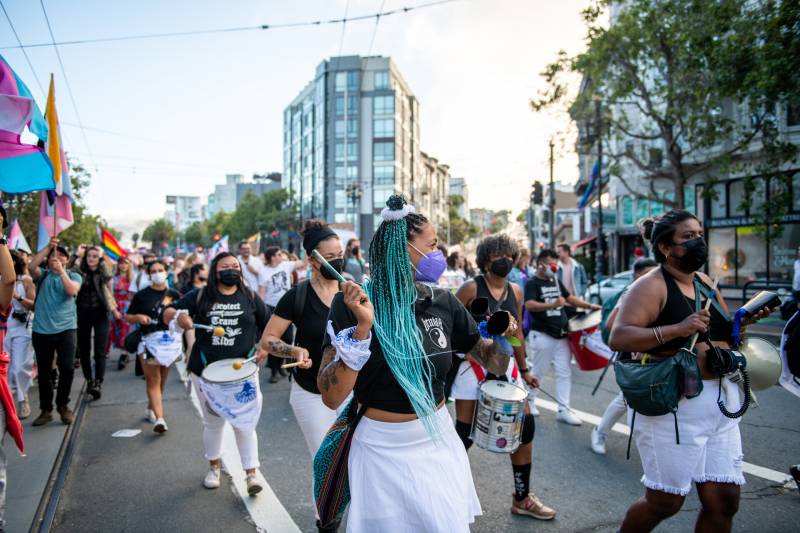
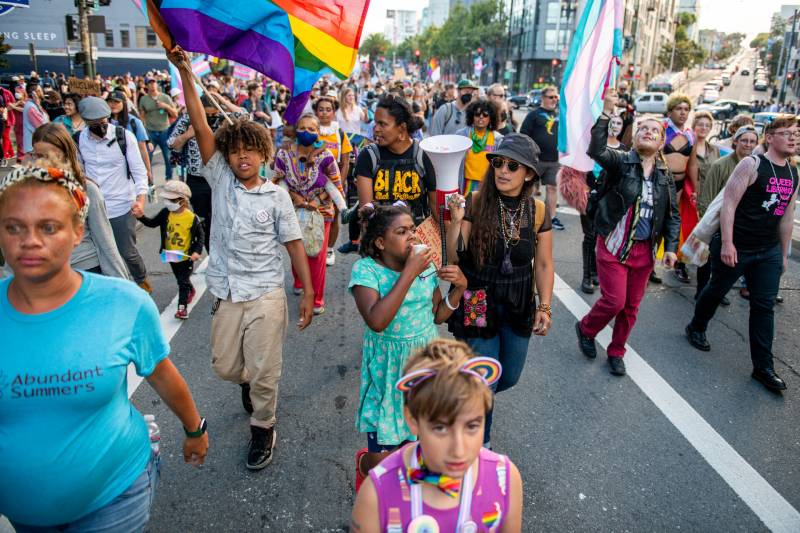
The march landed on the corner of Turk and Taylor Streets, arguably the birthplace of radical queer resistance in the Bay Area. Here, in 1966, trans women and drag queens rioted against police brutality at the now infamous Compton’s Cafeteria—three years before Sylvia Rivera, Marsha P. Johnson and others did the same at the Stonewall Inn in New York City, kicking off the modern-day gay rights movement in 1969.
